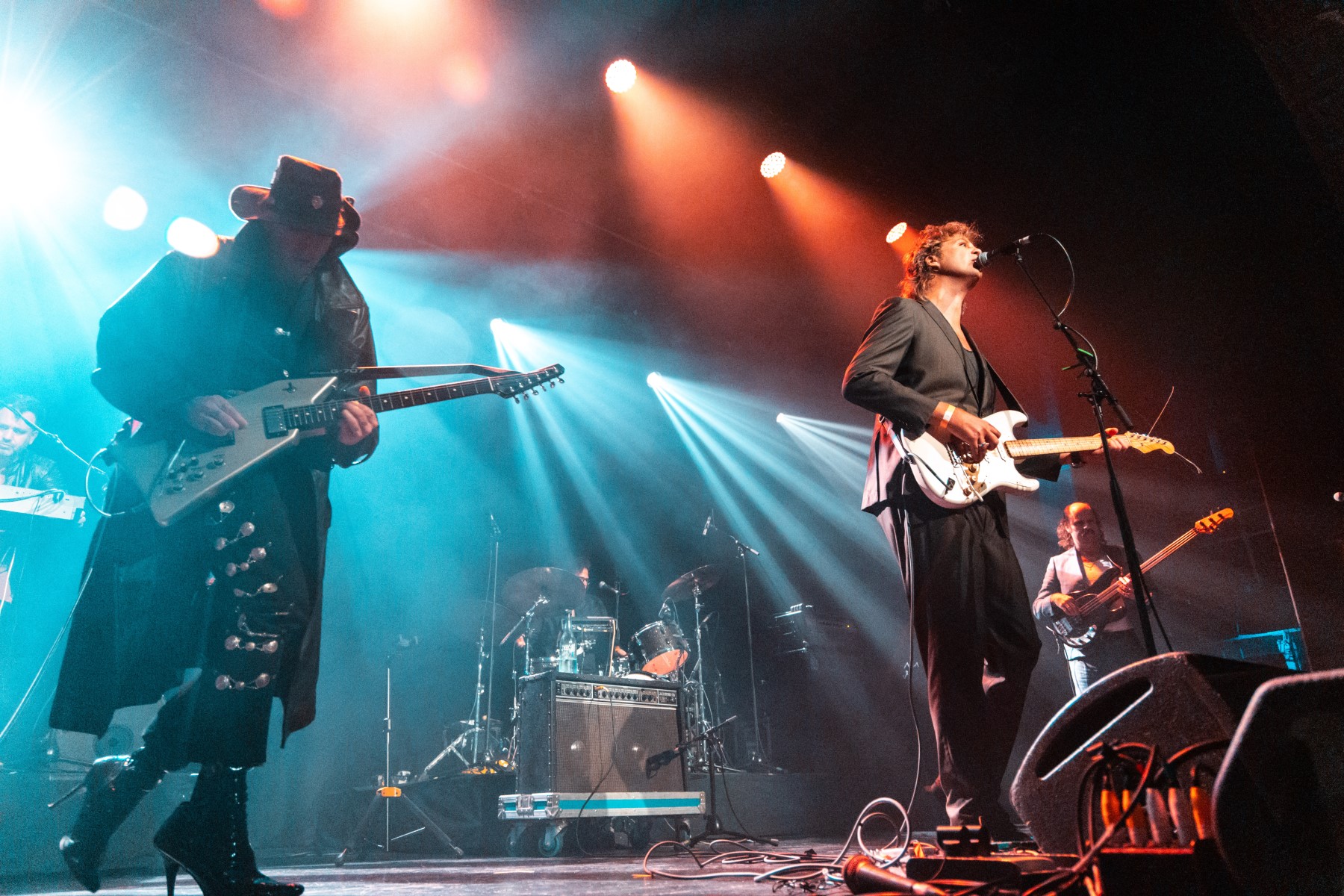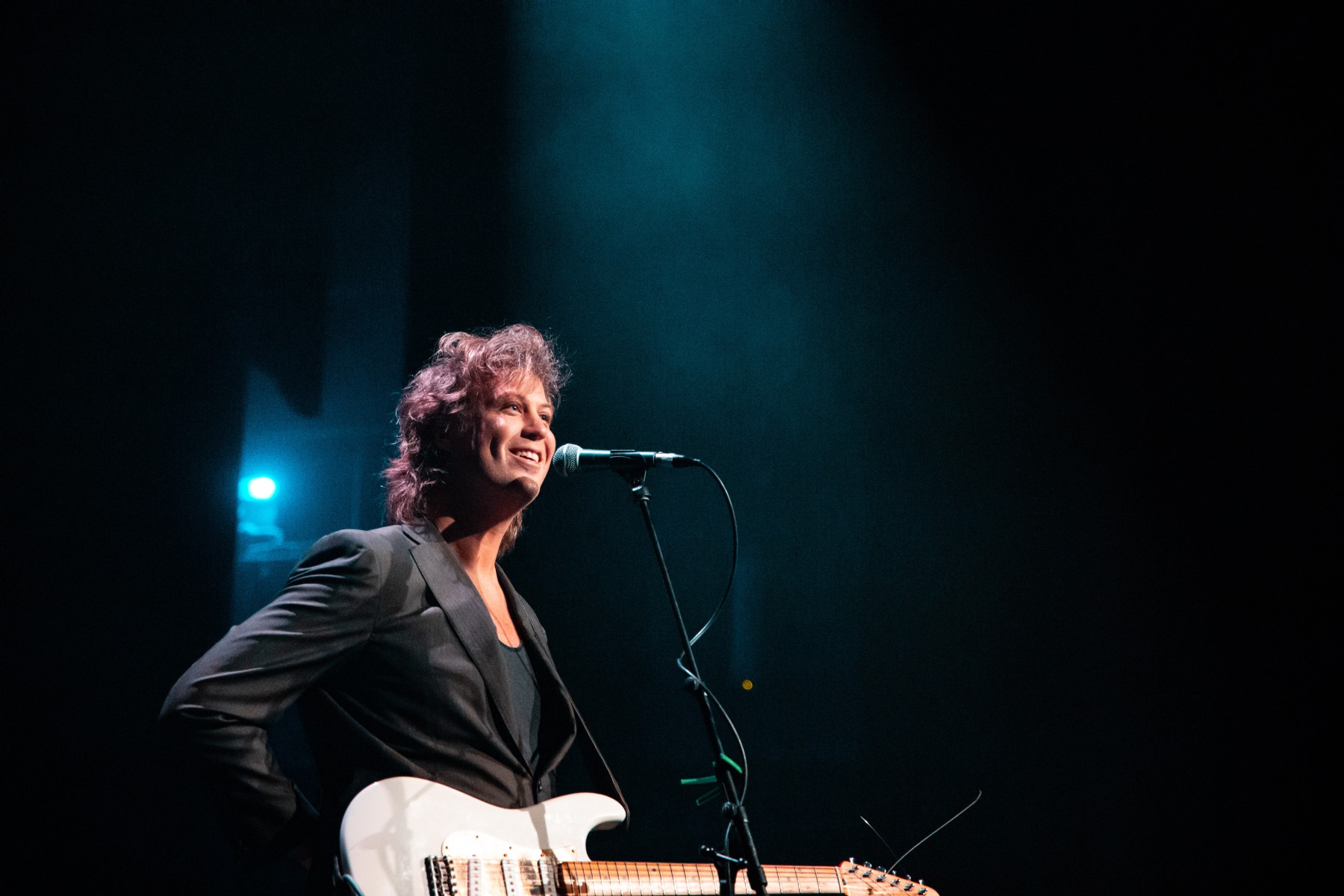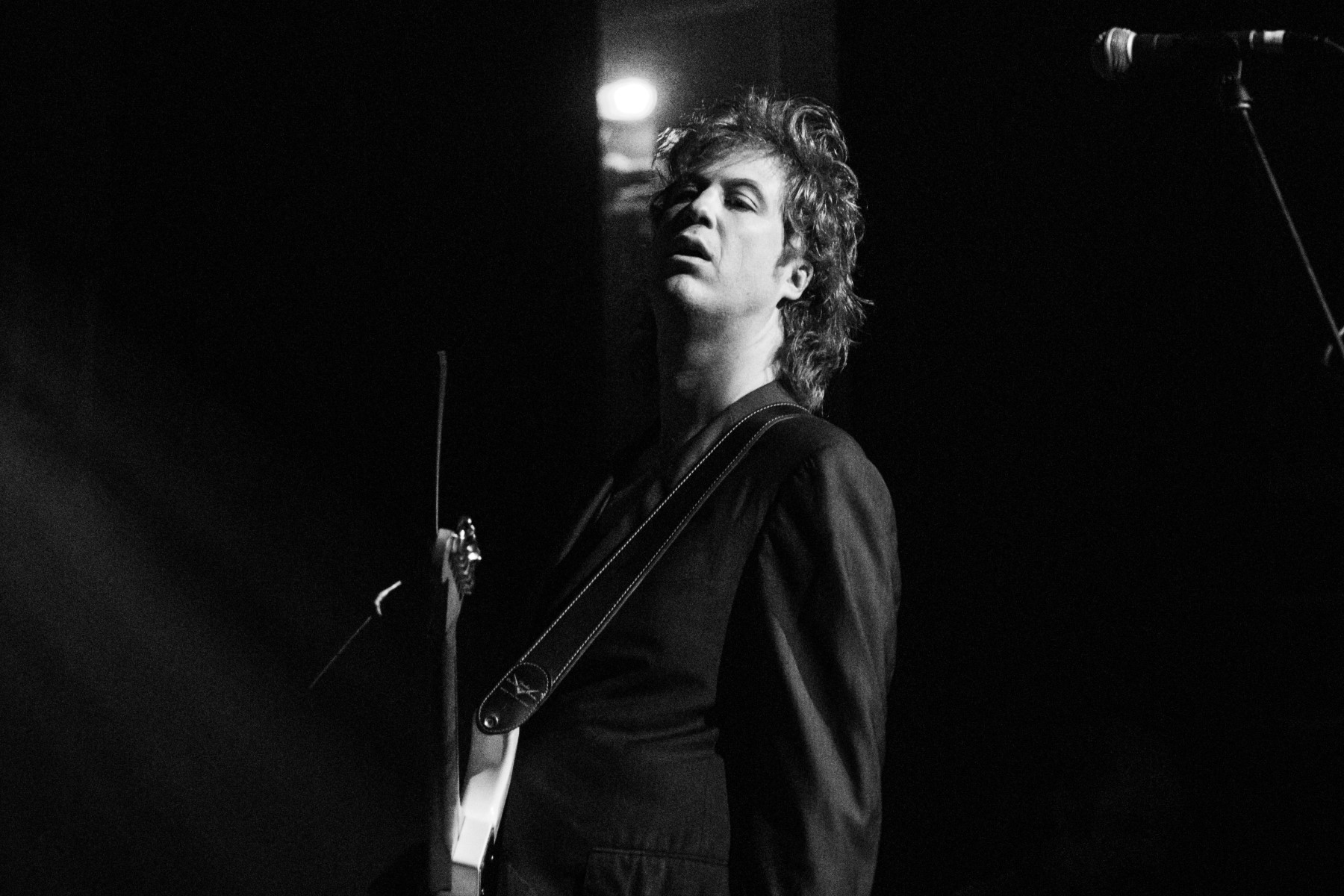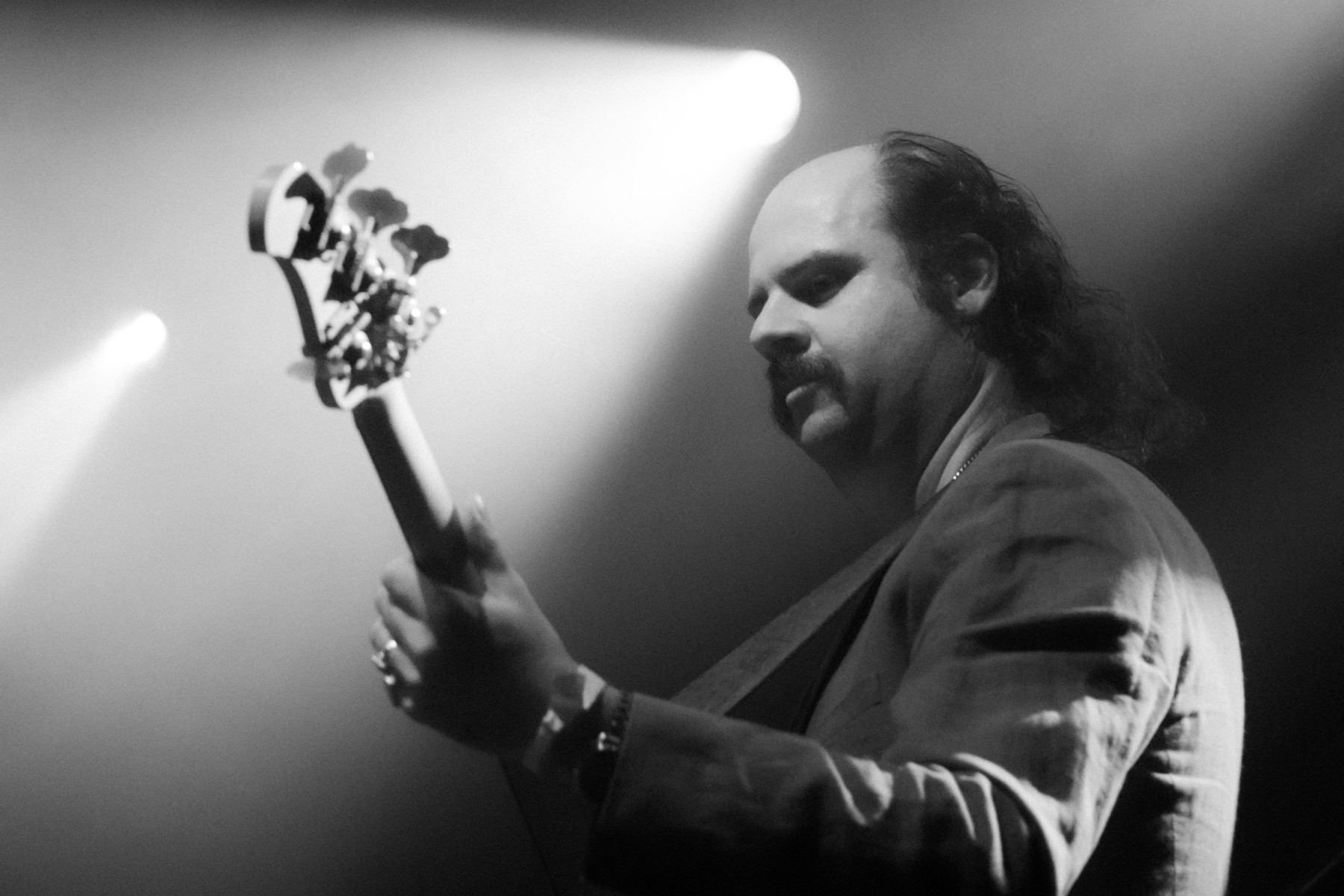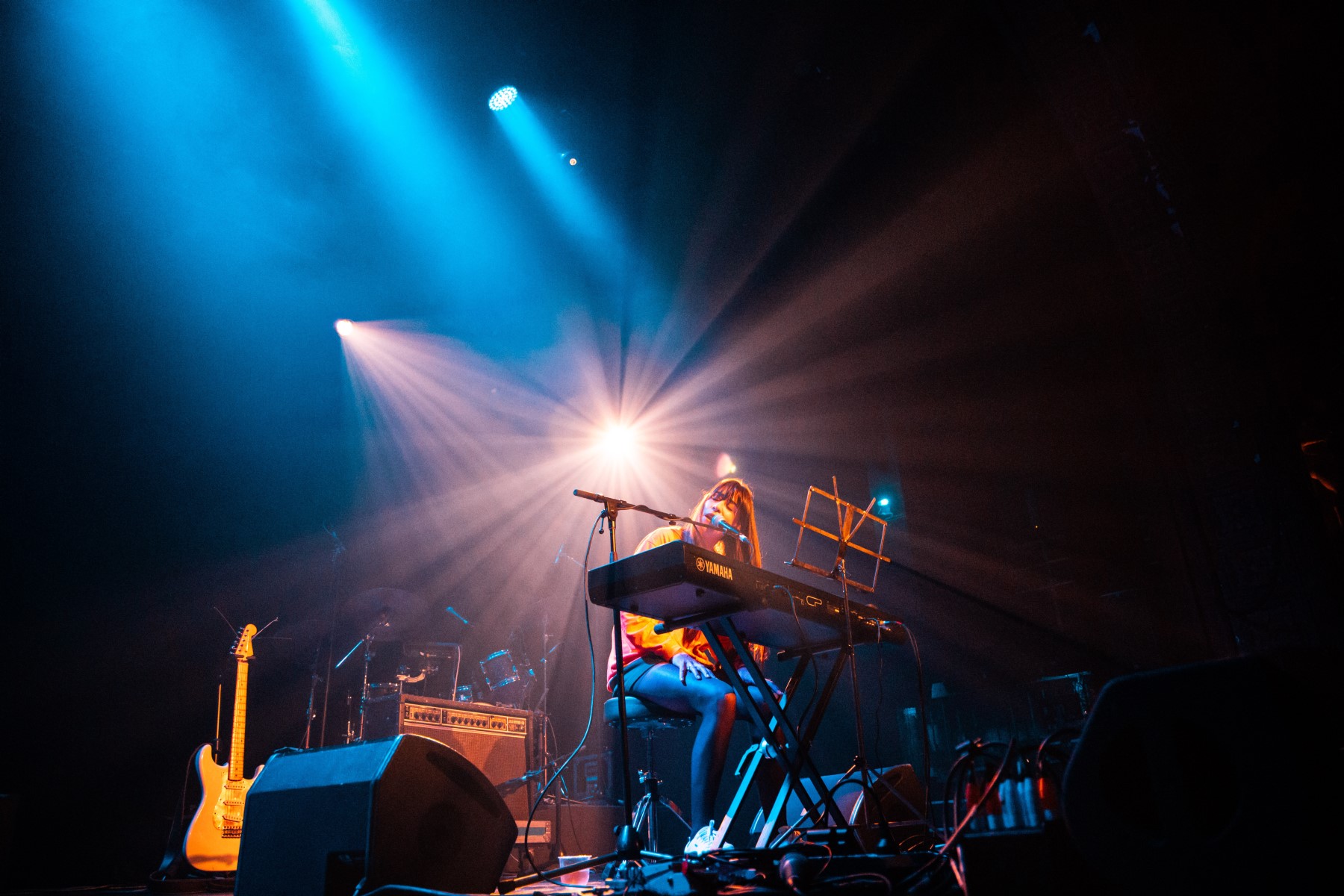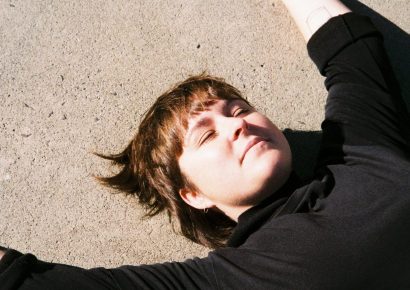Photos by Tom Stevens
In celebration of Hurtsville’s tenth anniversary, Jack Ladder & The Dreamlanders delivered a triumphant display of writerly rock music at Melbourne’s Forum.
Released in 2011, Hurtsville was a turning point in Jack Ladder’s career. The Sydney artist’s third LP was the recorded document of a stylistic shift that began when Ladder teamed up with guitarist Kirin J Callinan a couple of years earlier.
Ladder was obviously eager to evolve past the bluesy garage rockers and stately ballads of his first two records, and in Callinan he found the perfect foil. Although he’s now recognised as an idiosyncratic artist in his own right (and to some, l’enfant terrible of Australian music), Callinan was then best known for adding mountains of guitar noise to the music of his former band, Mercy Arms.
Catch up on the latest music interviews, news and reviews here.
Perhaps emboldened by the errant nature of Callinan’s guitar playing, Hurtsville saw Ladder adopt a more irreverent style than he had done previously, drawing influence from Leonard Cohen, Tom Waits, Iggy Pop, Nick Cave et al without getting bogged down in tributary emulation.
Generally credited to Jack Ladder & The Dreamlanders, Hurstville is now ten years old and it’s easy to mount a case for it as the most significant record in Ladder’s discography. If pressed, I’d take his two latest albums over Hurtsville, but Ladder and The Dreamlanders couldn’t have made such maverick advances were it not for the numerous alchemical breakthroughs achieved on Hurtsville.
Callinan and the rest of the original Dreamlanders – drummer Laurence Pike (PVT), bassist Donny Benet and keys player Neal Sutherland (Sarah Blasko) – joined Ladder for this tenth-anniversary performance, which consisted of a front-to-back representation of the record.
After the setlist’s sixth track, ‘Blinded By Love’, Pike jumped on the mic to ask, “Is that the first time we’ve ever played that song?” It was, confirmed Ladder. The band broke apart not long after the album came out, he explained.
See, the record hadn’t become a global best-seller and the band members weren’t seduced by the offer of a £5 per diem to live and work with Ladder in London.
View this post on Instagram
They reformed a few years later, but to work on and tour behind 2014’s more spirited and synth-driven, Playmates. As we saw here, the songs on Hurtsville aren’t lacking in dynamic tension or prominent vocal hooks, but the record is significantly more restrained than the collective’s later releases.
The average song length is six minutes and along with Callinan’s post-punk guitar atmospherics and Pike’s never-unimaginative drumming, Ladder fills each one with an awful lot of lyrics. Good lyrics, too; a fact this performance served to corroborate.
Ladder acolyte Alex Cameron has spoken of the formative influence of Hurtsville, telling Music Feeds that “For every verse, there’s a line that changed my perspective on songwriting.”
Melbourne’s Forum must be one of the biggest rooms Ladder has ever headlined, and the venue’s stellar acoustics aptly magnified the album’s unique lyricism.
Opener and album highlight, ‘Beautiful Sound’, had a drifting, oceanic insistence, over which Ladder imparted images of receiving postcards from the family doctor and witnessing a “cheap backstabbing in an alleyway.”
The record’s most popular track, ‘Cold Feet’, is an icy post-punk number not dissimilar to David Sylvian or late-era Talk Talk. It made a searing impression here, with the band dexterously recreating the recording’s burbling tension.
It was clear the album holds great sentimental value for many in the audience. The title track – a spare, seven-minute procession of verses filled with manic self-laceration and goofy jokes – could’ve gone for at least twice as long and not risked losing anyone’s attention.
Although it’s fair to presume Ladder’s lyrics were Hurtsville’s raison d’etre, the deep feeling and sly humour contained in these songs would’ve translated regardless of whether you were following the words with dextroamphetamine-like attentiveness.
This performance re-affirmed that Ladder is a solo artist blessed with that rarest of things – a band that fully understands its place. The four Dreamlanders didn’t play behind Ladder so much as they understood when to step up and amplify the songs’ psychic essence and when to pull back and let their frontperson occupy the spotlight.
Supported by such an adroit crew, Ladder could return to Hurtsville with affecting effortlessness.
